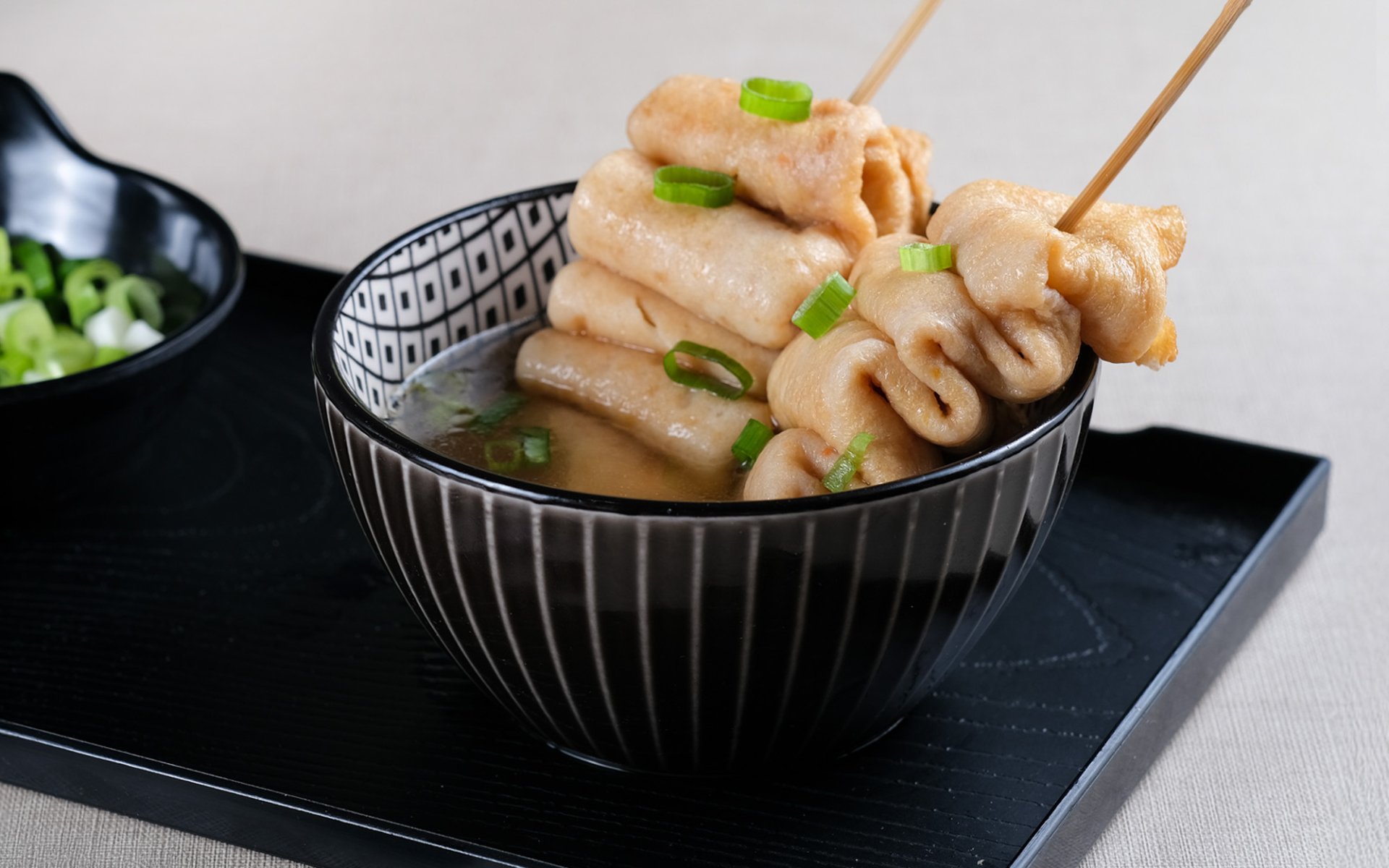Eomuk

Eomuk (어묵) is a type of processed food made from ground fish, seasoned, and shaped into sheets or pieces, then steamed, boiled, or fried. It is widely consumed in Korea as street food, snacks, or as an ingredient in various other dishes.
The word Eomuk comes from the Korean word Eo meaning fish, and Muk meaning mashed food or cake. Combined, it translates to fish cake.
The History of Eomuk: From Royalty to the Common People
Making food from ground fish has been practiced in many cultures worldwide since ancient times, as it's an effective method for food preservation. As for Eomuk, evidence suggests it has been consumed in Korea since the Joseon Dynasty (1392-1910), with ancient records mentioning various forms of fish-based dishes.
One of the significant documents mentioning Eomuk is Jeungbo Sallim Gyeongje (증보산림경제), a book on rural economy and agriculture written in the late Joseon Dynasty. This book describes Eomuk as a dish made from ground fish that was then fried or grilled. However, the form and preparation methods of Eomuk in that era differed significantly from what we are familiar with today.
Initially, Eomuk was not widely consumed by the general public. It was mostly prepared for the king or served at aristocratic banquets, as it required skilled preparation and relatively high-quality ingredients.
Eomuk in Post-Korean War Era: Food for Survival
However, after the Korean War ended, Eomuk began to gain wider recognition and popularity. During that period, food resources were limited, and fish was an easily accessible and inexpensive source of protein. Therefore, processing fish into Eomuk was an efficient way to add value to fish and provide an affordable food source for the general population.
In the 1950s, Eomuk production expanded rapidly, with many factories emerging in key port cities like Busan, which was a major fishing hub in Korea. Eomuk produced in Busan contained up to 70% fish meat, whereas typical Eomuk had only 50-60%. Additionally, some factories in Busan were able to produce high-quality Eomuk with over 90% fish content.
During this time, the Eomuk industry in Korea also developed technology and adopted modern machinery, such as fish deboners, dehydrators, and slicers, which boosted production efficiency. As a result, Eomuk became an easily accessible staple in the daily lives of Koreans.
Eomuk in Contemporary Korean Food Culture
Today, Eomuk is no longer just an inexpensive source of protein but has become an integral part of diverse and creative Korean culinary culture. Many Eomuk manufacturers have developed new production techniques and recipes to meet varying consumer demands, resulting in a wide variety of Eomuk in terms of shape, flavor, and cooking methods.
Eomuk can be enjoyed in various ways, including boiling, steaming, frying, and grilling. Furthermore, Koreans incorporate Eomuk into many other dishes, such as:
- Eomuk-bokkeum (어묵볶음): Stir-fried Eomuk with soy sauce and various vegetables, a popular side dish.
- Eomuk-tang (어묵탕) or Eomuk-guk (어묵국): A savory Eomuk soup, commonly enjoyed during winter.
- Tteokbokki (떡볶이): Eomuk is a key ingredient in Tteokbokki.
- Eomuk-bar (어묵바): Fried or grilled Eomuk on a skewer, a popular street food. It has also gained significant popularity in Thailand.
- Eomuk-jeon (어묵전): Pan-fried Eomuk dipped in batter.
Currently, Eomuk has spread to various countries, including Thailand, where it has gained immense popularity, especially with the recent influence of Korean food culture. Recipes have been adapted, and local ingredients used to suit Thai tastes, making Eomuk a popular Thai snack widely available.


